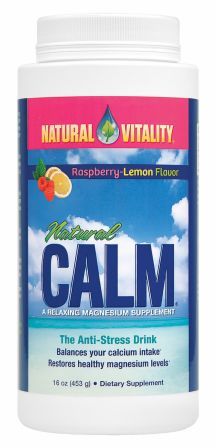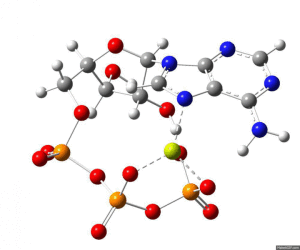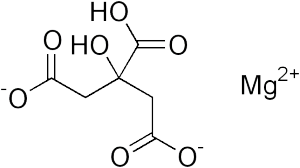TL;DR: Magnesium Citrate is the best in terms of cost/effectiveness, while Magnesium Glycinate is the best overall but costs a bit more.

What's the best form of magnesium? It depends on what you need. But for precise dosing, we love this magnesium powder
So you know you want to take a magnesium supplement, but you're not sure which one is best for you? That's what we're here for - we break it down below.
For us, we realized that there are some incredible sleep benefits to Magnesium, which is discussed in our Best Sleep Aid buyer's guide. But we wanted to go further for the other benefits as well!
It turns out that different types of magnesium have different benefits, so our goal is to get you the right one. If you want to learn about what magnesium is and does in your body, click here to skip down to the what is magnesium section.
What are the various forms?
Looking through the vitamin store's aisles, you’ll be bombarded by several different forms, yet not really know which is “best” for you to take.
This is important to know before buying, because some of the "benefits" of one type (such as laxation) can be considered a "side effect" if that's not what you wanted!
Fear not! First we break down the various forms, then we discuss which one to try depending on the benefits you'd like:
-
Magnesium Oxide
Magnesium Oxide (MgO) is simply magnesium bonded to oxygen. This is the cheapest form of magnesium supplement and has the lowest bioavailability, at only around 4-5%.[7]
Although it's cheapest, it's ultimately the one least worth it! So save your money and bypass any product that uses this form of magnesium.
-
Magnesium Citrate
Magnesium citrate is the most common form found in magnesium supplements and it has a high bioavailability!
This is far and away the most common form of Mg on the market. Here, magnesium is bonded to citric acid. The end result is higher bioavailability, around 35-40%, most likely due to its increased water solubility.[9,10]
One of the most popular magnesium supplements, Natural Calm, comes from "Ionic magnesium citrate".
Magnesium Citrate – Deals and Price Drop Alerts
Get Price Alerts
No spam, no scams.
Disclosure: PricePlow relies on pricing from stores with which we have a business relationship. We work hard to keep pricing current, but you may find a better offer.
Posts are sponsored in part by the retailers and/or brands listed on this page.
-
Magnesium Aspartate
Magnesium bonded to the amino acid L-Aspartate. It has a higher bioavailability than Magnesium Oxide, but lower than Magnesium Citrate.[10,11]
There are practically no standalone magnesium aspartate products, though. The good news is that they're often paired with potassium (which we're almost always happy to get more of), and marketed as bone supplements:
Magnesium Aspartate – Deals and Price Drop Alerts
Get Price Alerts
No spam, no scams.
Disclosure: PricePlow relies on pricing from stores with which we have a business relationship. We work hard to keep pricing current, but you may find a better offer.
Posts are sponsored in part by the retailers and/or brands listed on this page.
But there's another way to get in your Aspartate... and it's as popular as it is effective.
Look at ZMA to add in Zinc and B6
This is the form most frequently used in ZMA supplements. These contain a standardized blend of zinc monomethionine and aspartate (30 mg), magnesium aspartate (450 mg), and vitamin B6 as pyridoxine hydrochloride (10.5 mg).
ZMA – Deals and Price Drop Alerts
Get Price Alerts
No spam, no scams.
Disclosure: PricePlow relies on pricing from stores with which we have a business relationship. We work hard to keep pricing current, but you may find a better offer.
Posts are sponsored in part by the retailers and/or brands listed on this page.
To read more, you can see the ZMA Section in our Best Sleep Aid guide.
-
Magnesium Dihydroxide (Milk of Magnesia)
Here we take magnesium oxide and add a couple of hydrogen molecules giving us the chemical formula, MgOH2. This form is also known as Milk of Magnesia, and is most often used as a laxative.[8]
Milk of Magnesia – Deals and Price Drop Alerts
Get Price Alerts
No spam, no scams.
Disclosure: PricePlow relies on pricing from stores with which we have a business relationship. We work hard to keep pricing current, but you may find a better offer.
Posts are sponsored in part by the retailers and/or brands listed on this page.
-
Magnesium Glycinate (or Magnesium Diglycinate)
This form of magnesium is different from the other forms in that it’s absorbed in a different area of the intestines.[12] It also has a higher bioavailability than Magnesium Oxide.
When bound to the amino acid glycine, this makes it far easier for the intestine to absorb. While the small intestines are poor at absorbing minerals (as covered above), they're great at absorbing fats and amino acids! So the solution here is to "Trojan horse" it in by attaching it to an easy-to-absorb amino in glycine!
Magnesium Glycinate – Deals and Price Drop Alerts
Get Price Alerts
No spam, no scams.
Disclosure: PricePlow relies on pricing from stores with which we have a business relationship. We work hard to keep pricing current, but you may find a better offer.
Posts are sponsored in part by the retailers and/or brands listed on this page.
-
Magnesium Orotate
Orotic Acid is bonded to magnesium gives us the unique form of magnesium. It appears to help blood flow in the body, but it’s absorption rate in the body hasn’t been well documented. More likely than not, you won’t come across many supplements using this version.
Magnesium Orotate – Deals and Price Drop Alerts
Get Price Alerts
No spam, no scams.
Disclosure: PricePlow relies on pricing from stores with which we have a business relationship. We work hard to keep pricing current, but you may find a better offer.
Posts are sponsored in part by the retailers and/or brands listed on this page.
-
Magnesium L-Threonate
Our final form of magnesium is one of the newer and less known about versions. L-Threonate is a metabolite of Vitamin C that is currently being researched for its ability to increase bioavailability of various minerals.[12]
It’s been suggested that this has a higher bioavailability than Magnesium Citrate, but there isn’t enough data to prove this hypothesis one way or another.
Magnesium Threonate – Deals and Price Drop Alerts
Get Price Alerts
No spam, no scams.
Disclosure: PricePlow relies on pricing from stores with which we have a business relationship. We work hard to keep pricing current, but you may find a better offer.
Posts are sponsored in part by the retailers and/or brands listed on this page.
-
What is Magnesium Asporotate?
Don't confuse Magnesium Asporotate with Magnesium Aspartate.
The Asporotate form is a cleverly-named mixture of Magnesium Aspartate, Magnesium Citrate, and Magnesium Orotate. There aren't many products like this, so we don't have a separate category on PricePlow for them.
If you want to try this to get the "best of all worlds", one such product is Solaray's Magnesium Asporotate:
Solaray Magnesium Asporotate
Get Price Alerts
No spam, no scams.
Disclosure: PricePlow relies on pricing from stores with which we have a business relationship. We work hard to keep pricing current, but you may find a better offer.
Posts are sponsored in part by the retailers and/or brands listed on this page.
What about Chelated Magnesium?

Chelated Magnesium is simply magnesium bonded to an ionic salt to increase its bioavailability in the body, ensuring maximum absorption.
Ah, you may have heard of chelated magnesium before. quite possibly when looking at the various forms of creatine, as in Magnesium Creatine Chelate. So, what the heck is it?!
Chelated magnesium is simply a term used when magnesium is bonded to a negatively charged ion (an anion). Some common examples of this include Magnesium Citrate and Magnesium Glycinate. The purpose of this is to increase the bioavailability of magnesium and ensure that it “survives” passing through the stomach and passes to the small intestine, where it’s absorbed for use in the body.
So what is the best magnesium?
As always, when someone asks for the "best", the answer is, "it depends on what effects you want", as well as how much you're willing to spend.
So we break down the general benefits / desired effects, and you can choose the right one for you, with PricePlow comparisons linked above:
-
Overall health and wellness
Look for a magnesium supplement that uses Magnesium Citrate or Magnesium Aspartate, as they have the higher levels of bioavailability than many of the other forms.
Recommended dosage: 400mg/day
-
Improving sleep
Again, look for a sleep based product that utilizes the citrate or aspartate forms as they have the highest absorption rate.[14,15]
Due to the fact that so many ZMA users report wonderful sleep, we recommend magnesium aspartate (or simply finding a good ZMA supplement) for better sleep.
Note that ZMA users also report extremely vivid dreams -- this comes from the Vitamin B6 that's in the ZMA formula, not the magnesium. Some love this effect, but some don't, so consider ZMA supplementation with that in mind.
Recommended dosage: 450mg as part of ZMA formula
-
Learning Improvement
Looking to boost brain power? Go with Magnesium L-Threonate as it increases magnesium levels in the brain, which boosts learning!
If you’re looking to boost brain power, you may want to consider Magnesium L-Threonate. There’s been some interesting research showing this particular form increases brain magnesium levels which improves learning.[17,18]
Recommended dosage: 50mg/kg elemental magnesium (604mg/kg Magnesium-L-Threonate)
-
GI Distress
Go with Milk of Magnesia, Magnesium Dihydroxide, as it’s the most commonly used form of magnesium in laxatives.
Recommended dosage: 250-1000mg
What about the laxative issue?
Sooner or later, most of us will suffer from some form of constipation, and we’ll need a little assistance getting things running smoothly again. Magnesium is one of the most common laxatives both for its effectiveness and cost-efficiency.
Now, in terms of dosage, what’s the proper amount?

There are TONS of magnesium supplements on the market, but which is best? We answer that question today!
There is no “ideal” dosage for everyone unfortunately, as magnesium’s laxative effects are going to be dependent on your daily water and fiber intake. That being said, it’s generally recommended to start around 250mg of magnesium and gradually increase the dosage to 500-1000mg based on your body’s response to increased amount.
If you have nice, smooth (i.e. no hard lumps or straining) bowel movements, you know the dosage is right. If you’re running to the bathroom every 30 minutes and shooting out liquids, you know you need to dial the dosage back a good bit.
The soft stool test
The "soft stool test" is also a good barometer for anyone dosing magnesium. Keto dieters, for instance, are known to slowly bump up their magnesium dosing until they have wetter stool (but not diarrhea). You will obviously know when you've dosed too far!
Where powders are king
For anyone who wants to drill down to a very specific dose, powdered magnesium supplements may be the way to go. Thousands of reviewers have enjoyed a supplement such as Natural Calm Magnesium, which is a flavored powder you can take before bed.
We wish we could simply give you a dose that will work for everyone, but that's simply not how it works. If you have severe constipation and 1g of magnesium isn't doing anything, it's likely time to seek a doctor's attention and consider stopping whatever is originally causing your bowel issues.
What about Calcium and Magnesium?

Calcium and magnesium are both involved in bone formation, but taking them together doesn't necessarily equal better absorption.
Due to both minerals’ role in bone formation and metabolism, calcium and magnesium are sometimes combined in a single supplement. This may not be the most optimal dosing protocol to follow though as these two minerals compete for the same absorption pathway. When dosed together, calcium absorption seems to be impaired.[16]
If you are already deficient in calcium, taking a combined calcium-magnesium supplement could lead to further deficiency issues due to the malabsorption of calcium. For this reason, it may be best to take your calcium and magnesium supplements separately.
What is Magnesium?
Magnesium is a mineral that is abundant in the body and wide variety of foods, particularly leafy greens and nuts. Next to calcium, magnesium is the second most abundant mineral in the body,[4] and the second most common nutrient deficiency in people,[6] mostly due to diet. It is required in over 300 processes in the body including:
-
Protein synthesis[1,2,3]
-
Energy production[1,2,3]
-
Blood glucose control[1,2,3]
-
Blood pressure regulation[1,2,3]
-
Muscle contracts[5]
These are just a few of the many roles that magnesium plays in the body. As you can see just from this sampling, ensuring that your stores of magnesium are topped off is crucial to not only performing well in the gym, but maintaining overall health. That is why we created this page - to get the right form in your hands.
Takeaway
Well, there you have it! Hopefully we’ve convinced you of how important magnesium is not only to you athletic pursuits but your overall health. If you are highly active, or don’t eat enough veggies and nuts, it’s vital for you to invest in a quality magnesium supplement to make sure you’re replenishing your body’s stores of this mineral.
Make sure to check the widget below for the best deal on any and all magnesium supplements!
Magnesium – Deals and Price Drop Alerts
Get Price Alerts
No spam, no scams.
Disclosure: PricePlow relies on pricing from stores with which we have a business relationship. We work hard to keep pricing current, but you may find a better offer.
Posts are sponsored in part by the retailers and/or brands listed on this page.




Comments and Discussion (Powered by the PricePlow Forum)